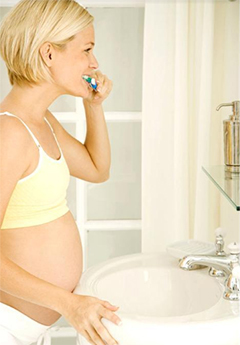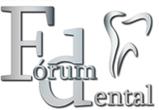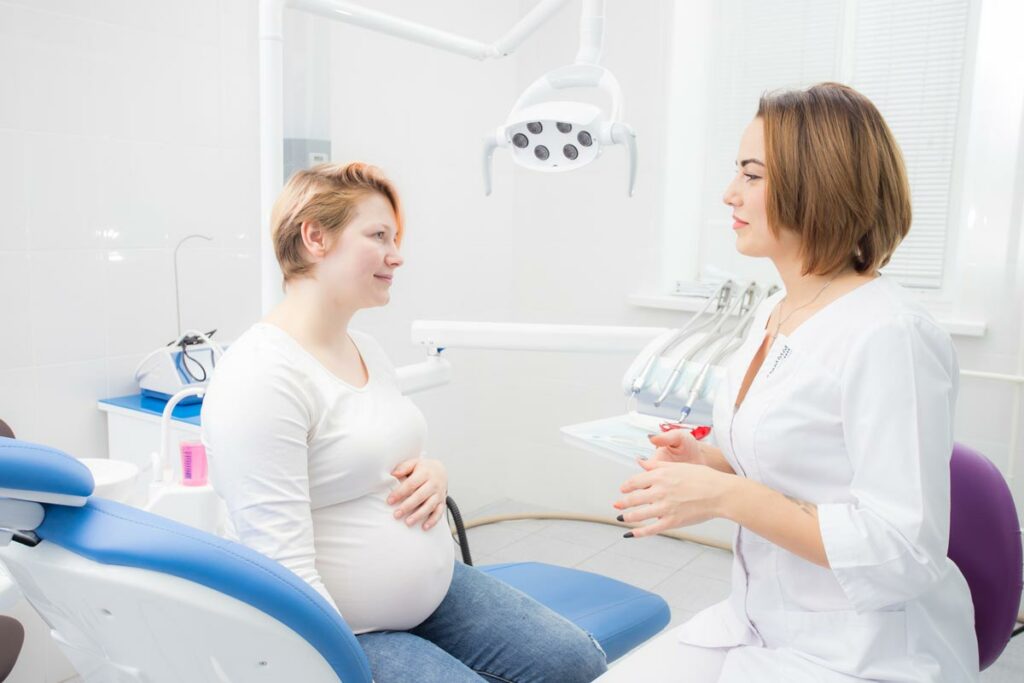Tooth problems during pregnancy?- Facts and misconceptions: misconception that the baby is sucking calcium from the mother’s teeth. Many patients say the above, but it is not true.
We only have ourselves to blame if our teeth decay during pregnancy.
Increased tooth decay is not caused by the increased mineral requirements that our baby needs, but by the acidic metabolites formed during the breakdown of the carbohydrate intake.
However, this can be prevented by brushing your teeth thoroughly and with the right technique. It is a fact that calcium requirements are increased during pregnancy, but the increased requirement is met by the mother’s body through increased absorption from the intestine and, in the absence of adequate intake of mineral salt, from bone reserves. Calcium cannot be released from the adult tooth in the oral cavity into the body.
Fact: More attention to dental care during pregnancy
Hormonal changes during pregnancy can also leave their mark on the gums. More sensitive gums, loosened periodontal fibres, and saliva that is less able to cope with bacteria can lead to gingivitis in pregnancy.
Symptoms of gingivitis: bleeding gums, painful, possibly itchy swollen, reddened gums, unpleasant breath. However, it is very important to note that pregnancy gingivitis is not caused by pregnancy itself, but by plaque or tartar deposited on the surface of the teeth, which contains bacteria and toxins that cause inflammation.
It is therefore advisable to have regular dental check-ups before and during pregnancy, so that tartar can be removed if necessary, thus preventing gingivitis during pregnancy.

(image source : blog.radmedica.net)
Fact: Careful with snacking!
This is not just a problem affecting the teeth of pregnant mothers, but it is important to mention because of the hormonal changes that affect them. For sure, snacking is not an unfamiliar concept for new mothers.
Often it only takes a single cube of chocolate, while some people would just snack all day.
This is important for the teeth because, after ingestion of food, there is a physiological process by which the pH of the mouth “returns” to normal after 30-60 minutes following a meal.
What exactly does this mean?
The fact that carbohydrates ingested at meals provide nutrients for oral bacteria, which digest these carbohydrates and produce acids that can lead to tooth decay in the long term.
If there is enough time between meals, saliva will normalise this acidic pH. When snacking, however, the bacteria are constantly provided with nutrients, resulting in a constant production of acids, so the pH of the mouth is constantly below the critical pH level, leading to increased tooth decay.
This can be prevented by not snacking or improved by brushing more often.
If you have any questions or would like to have your teeth checked, please feel free to contact our dentists, who will be happy to help you!

